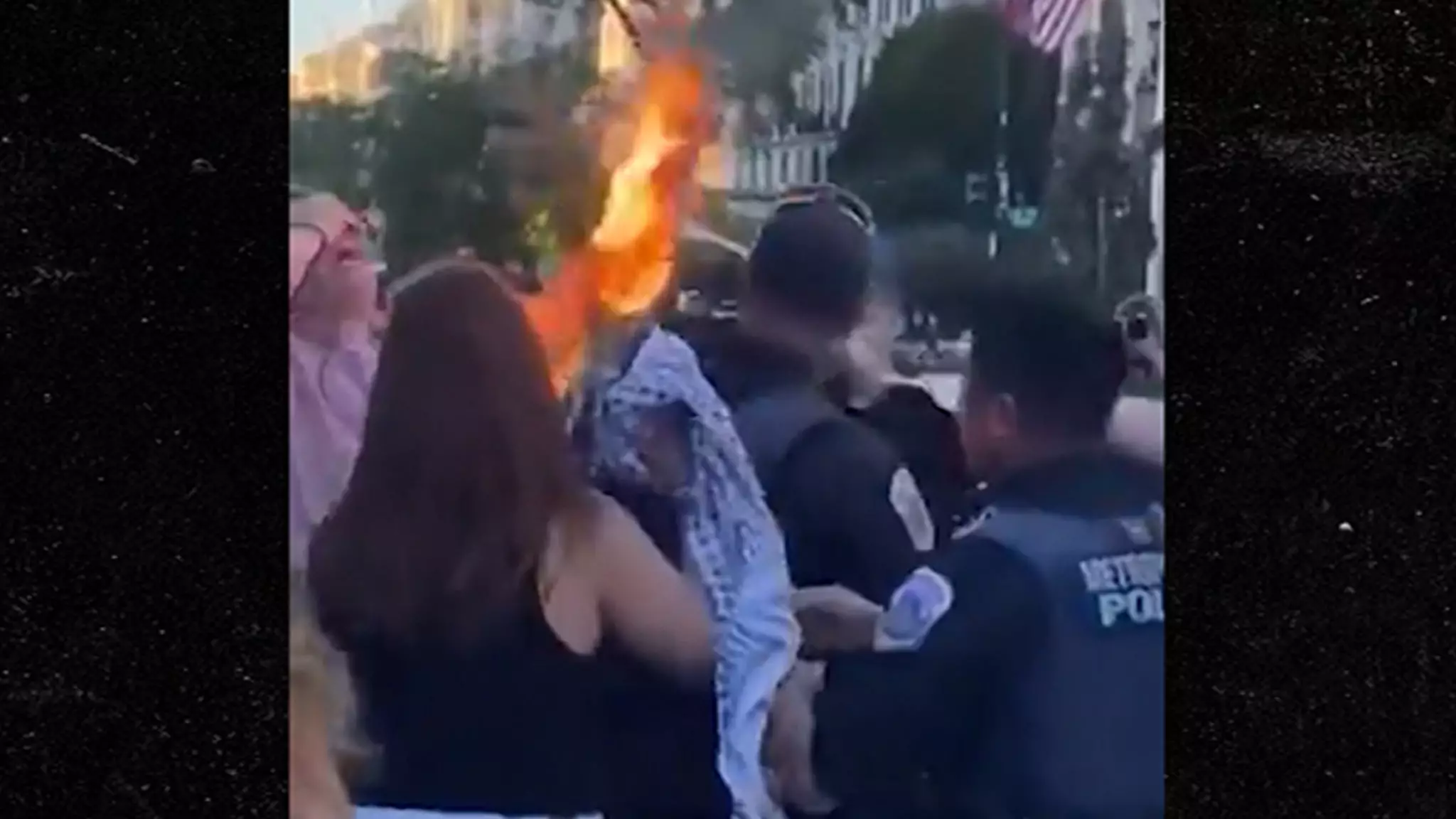In a chilling incident that underscored the profound emotional turmoil stemming from the ongoing Israel-Hamas conflict, a protest in Washington D.C. escalated dramatically as a photojournalist, identified as Sanuel Mena Jr., self-immolated outside the White House. This shocking act of desperation, caught on video, forced onlookers and authorities to confront the depths of anguish surrounding this protracted conflict, which has now claimed tens of thousands of lives in Gaza.
The protest aimed to amplify calls for an end to the violence ravaging the Gaza Strip, where the plight of the Palestinian people continues to deteriorate under Israel’s airstrikes and military operations. Supporters of both sides gathered, reflecting a society deeply fractured by a prolonged and distressing conflict. Yet, it was Mena’s alarming act that overshadowed the intended message of solidarity and peace, turning a critical moment into a tragic satire of despair.
Amidst the political rhetoric and visceral images splashed across news headlines, it’s easy to become numb to the human cost of such conflicts. In the chaos that erupted following Hamas’s attack on October 7, 2023, which claimed over 1,200 Israeli lives, and the subsequent military responses, a staggering number of Palestinian casualties—estimated at over 40,000—have become mere statistics in a narrative defined by aggression and retaliation. Each life taken has a backstory, a family left grieving, and questions left unanswered about the possibility of peace.
Mena’s self-immolation not only highlights an individual’s suffering but serves as a grim reminder of the psychological toll that collective trauma inflicts on both sides. His actions, while alarming, bring to light the desperation felt by many who see no resolution to their suffering. Whether fueled by a desire for change or an expression of hopelessness, it prompts a much-needed reflection on the efficacy of protest and the urgent need for dialogue.
As media outlets disseminate footage of Mena’s act, it is imperative to approach the narrative with sensitivity and responsibility. The risk of sensationalizing such events can lead to a dangerous cycle of violence and mimicry, where individuals may resort to extreme measures in hopes of galvanizing attention to their cause. Instead of viewing Mena purely through the lens of a shocking headline, journalists and audiences alike should seek to understand the complexities of his motivations and the broader socio-political context that has driven him to such a drastic action.
Given the overwhelming emotional distress that ensues in the wake of violent conflicts, media platforms have the responsibility to foster conversations around mental health support and the genuine stories of those affected by war. It is crucial to promote narratives that encourage empathy and healing rather than escalating tensions.
In light of this tragic incident, it becomes evident that both sides of this complex conflict must invest in understanding and rebuilding. Dialogue and compassion are essential in fostering a sense of mutual respect and collective healing. As communities rally for peace, let Mena’s moment of despair serve as a rallying cry for humanity—a stark reminder to advocate for the dignity of all lives affected by this enduring conflict, as we all contend with the consequences of war and seek a path toward reconciliation.

